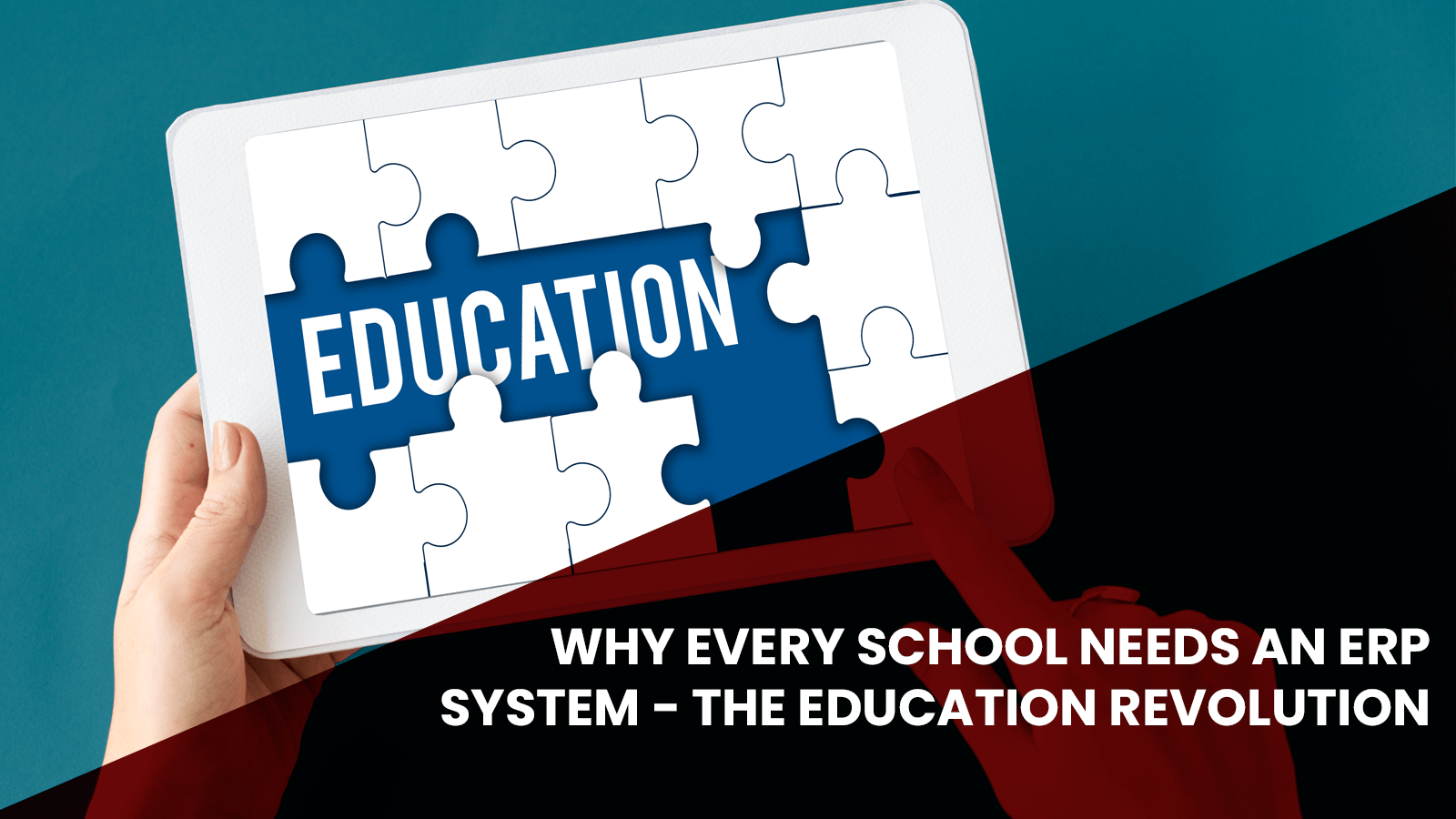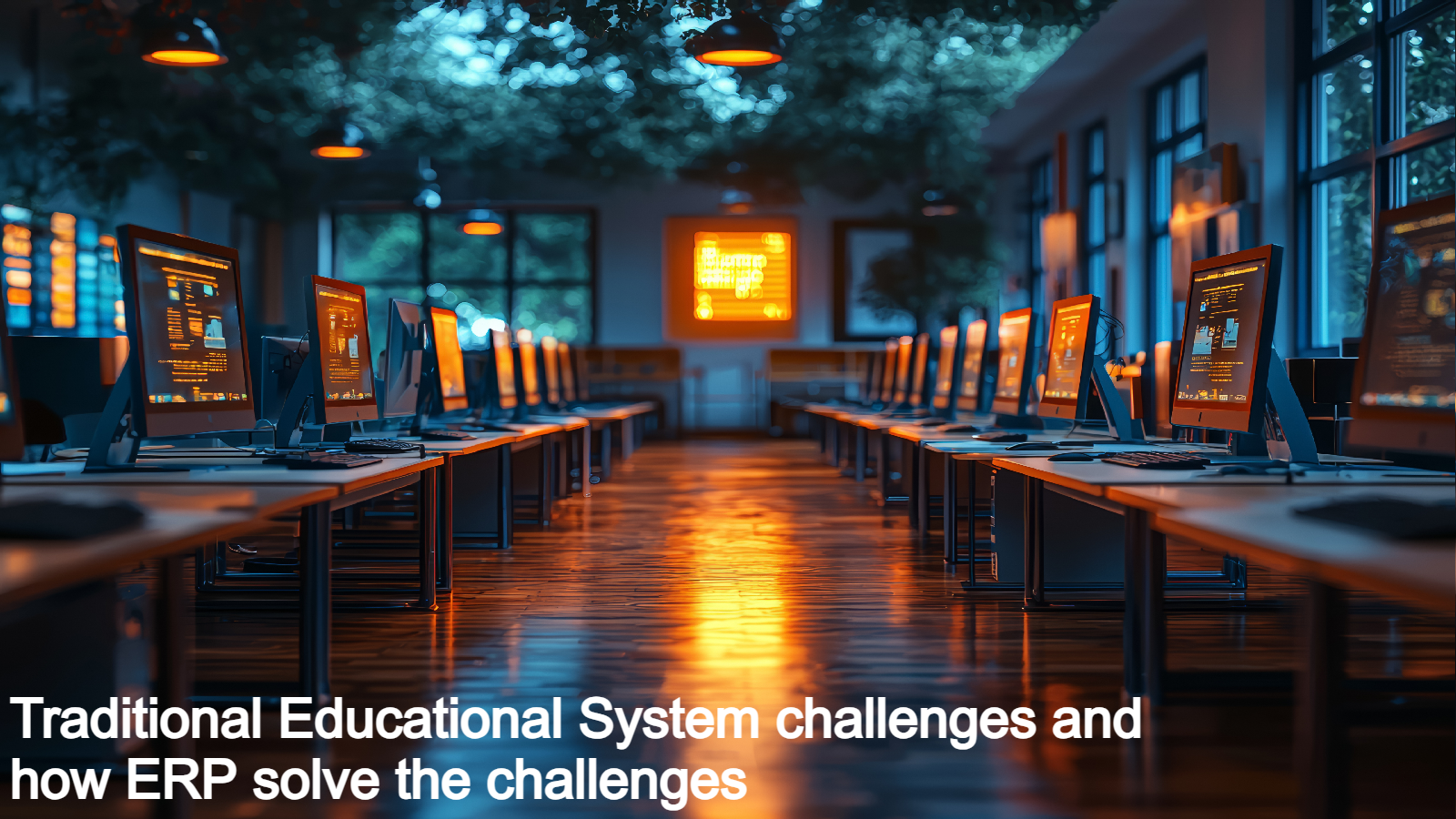Importance of ERP System Educational Institution
In today’s rapidly evolving educational landscape, the integration of technology has become more than just an option; it’s a necessity. Every school, be it a small local institution or a large university, needs an Enterprise Resource Planning (ERP) system to navigate the challenges and opportunities presented by the education revolution. This article will delve into the reasons why ERP systems are indispensable for educational institutions, outlining their benefits, functionality, and impact on the future of education.
The Education Ecosystem: A Complex Web of Data and Operations
Education institutions are multifaceted ecosystems, consisting of students, teachers, administrators, and a plethora of data and operations. These entities are interconnected, and to manage them effectively, schools require a comprehensive ERP system that streamlines various processes.
What Is an ERP System?
ERP, or Enterprise Resource Planning, is a software solution designed to facilitate the management of core business functions. In the context of schools, it serves as an integrated platform that automates and centralizes various operations, from admissions to alumni management.
Benefits of Implementing an ERP System
Implementing an ERP system in a school environment offers a wide range of benefits, including:
-
Improved Administrative Efficiency
ERP systems reduce manual administrative tasks, allowing staff to focus on more strategic activities. This leads to streamlined operations, lower costs, and enhanced productivity.
-
Enhanced Communication and Collaboration
With ERP systems, schools can improve communication and collaboration among students, teachers, and administrators. Information can be easily shared and accessed, fostering a sense of community within the institution.
-
Data-Driven Decision Making
ERP systems provide schools with data analytics tools that enable informed decision-making. This data-driven approach helps in understanding student performance and optimizing resources.
-
Student Enrollment and Admissions
Streamlined admissions processes lead to increased enrollments and better student experiences. ERP systems facilitate online applications, document management, and admission tracking.
-
Financial Management
Efficient financial management is crucial for the sustainability of educational institutions. ERP systems aid in budgeting, accounting, and financial reporting, ensuring financial stability.
-
Alumni Relations
Building and maintaining strong alumni relations is vital. ERP systems help in organizing alumni data, tracking donations, and conducting alumni outreach programs.
-
Secure Data Management
Data security is a top concern for schools. ERP systems provide a secure environment for data storage and access, safeguarding sensitive information.
The Role of ERP in Shaping the Future of Education
ERP systems are not just tools for improving current operations; they are instrumental in shaping the future of education. Here’s how:
-
Personalized Learning
ERP systems can track student performance and tailor learning experiences to individual needs, fostering personalized education.
-
E-Learning and Remote Education
In the digital age, schools need to offer online and remote education options. ERP systems enable the management of online courses and resources.
-
Performance Analytics
With ERP analytics, schools can gain insights into teaching methods and student performance, driving continuous improvement.
-
Integration of IoT and Smart Technologies
ERP systems can integrate with IoT devices and smart technologies, creating smarter campuses and enhancing the learning experience.
-
Long-Term Planning and Sustainability
ERP systems assist schools in long-term planning, ensuring sustainability and growth in a rapidly changing world.
Conclusion
In conclusion, an Education ERP system is not just a tool for schools; it’s a transformative force in the education sector. With its wide array of benefits and its potential to shape the future of education, every school should consider implementing an ERP system. It’s time for educational institutions to embrace this technological revolution for the betterment of their students and the entire learning community.
FAQs
What is the cost of implementing an ERP system in a school?
The cost of implementing an ERP system varies depending on the school’s size and specific requirements. It’s essential to request quotes from reputable ERP providers to get accurate pricing.
How long does it take to fully implement an ERP system in a school?
The timeline for ERP system implementation can also vary. It generally takes several months to a year, depending on the complexity of the school’s operations and the chosen ERP solution.
Are ERP systems secure for storing sensitive student data?
Yes, ERP systems are designed with robust security features to protect sensitive student data. It’s important to choose a trusted ERP provider to ensure data security.
Can small schools benefit from ERP systems as much as large institutions?
Yes, ERP systems are scalable and can be customized to meet the specific needs of small schools. They offer benefits to institutions of all sizes.
How can schools ensure a smooth transition to an ERP system?
To ensure a smooth transition, schools should provide adequate training for staff and engage with the ERP provider for support and guidance throughout the process.








